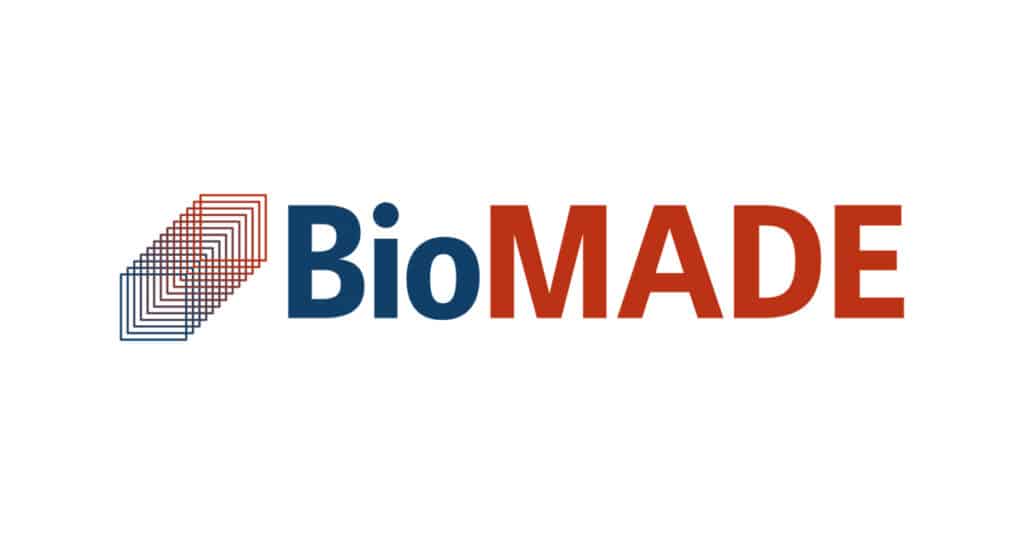Iowa manufacturers outline advancements, challenges from integrating AI, robotics, vision systems to production

Sarah Diehn Jun 14, 2024 | 6:00 am
9 min read time
2,162 wordsBusiness Record Insider, Manufacturing, Statewide NewsAs an industry already familiar with implementing advanced technology, Iowa’s manufacturing sector is one to watch as everything from robotic and automation technologies to solutions powered by artificial intelligence become more sophisticated and companies must decide where to invest resources.
The Business Record recently distributed a survey to gather the input of manufacturing stakeholders in Iowa on how automation and technology are affecting the industry today and how companies keep up with future evolutions.
We received responses from manufacturers as well as organizations that support and serve the manufacturing sector. Their answers are below and have been lightly edited for clarity.

Michael Niemeyer, engineering manager, Stellar Industries; truck and trailer manufacturer based in Garner
What technologies have contributed to the advancement of manufacturing and automation within that sector?
The continued implementation of robotics and advanced vision systems have and will continue to improve the quality and speed at which our products are produced. This continues to provide us with the ability to improve market share, reduce costs and deliver the quality that our customers demand. Specifically, our advancement into pressure-compensating robotic sanding allows us to reduce labor inputs by 80% on processes that are currently very difficult for us to retain a workforce.
What can Iowa’s manufacturing sector be doing statewide to help companies understand new technological advancements and decide which ones to invest in?
State colleges and universities continuing to investigate emerging technologies, training our future engineers and developing the talent pool that is needed in the workforce. As someone who specifies and purchases advanced automation technologies, this would be very beneficial and it could be shared with Iowa manufacturers in an automation summit on a quarterly basis.
How do you see automation technologies affecting your business and the Iowa manufacturing sector as a whole?
Automation is redefining the factory of the future in a big way. Workforce shortages, increased costs of labor and an aging workforce are making us look at doing things differently. Artificial intelligence, along with camera vision systems, are making robotic systems capable of doing tasks today that were only a dream even five years ago. We will continue to invest heavily in automation systems for the foreseeable future in order to remain competitive.

Laura Phillips, vice president of engineering, Pella Corp.; window and door manufacturer based in Pella
What technologies have contributed to the advancement of manufacturing and automation within that sector?
Many technologies are contributing to our advancement efforts in our sector. A few include:
- Automated Guided Vehicles (AGVs) are powerful for safely and efficiently moving materials.
- Robots are a great solution for highly repeatable work operations that require precision.
- Vision systems are helping us automatically detect defects or abnormalities, and when paired with artificial intelligence, we can predict when a problem might occur, and course-correct before it does.
- Digital twins (a digital representation of a physical object) are an excellent technology for automatically optimizing operating systems.
- Radio-Frequency Identification (RFID) technology is a key enabler in our efforts to create heightened material flow transparency throughout the value chain.
- AI-powered chatbots are aiding accelerated team member training and support.
A strong data foundation is necessary to unlock the power of automation technologies. Developing a clear data strategy is imperative for manufacturers to achieve full value from integrating automation technologies.
What can Iowa’s manufacturing sector be doing statewide to help companies understand new technological advancements and decide which ones to invest in?
Investing in automation technology education, benchmarking and talent is important for Iowa manufacturers. Manufacturing is critical to the economy, and the industry continues to face challenges that can be addressed through automation.
There is vast opportunity across the manufacturing sector, and I am honored to work in a state and for a manufacturer that is recognizing and embracing the importance of advancing through automation technology. Collaborating within the Iowa manufacturing industry will help us advance together. We need to focus on providing programs for educating and employing tech-savvy talent in the state.
How do you see automation technologies affecting your business and the Iowa manufacturing sector as a whole?
Automation technologies are helping Pella deliver key operational excellence goals. We see automation technologies delivering value in reliability, cost reduction, safety and team member engagement.
Automation, when applied thoughtfully, is the “easy button” that helps the team succeed in a complex manufacturing environment. We continue to increase investments in automation technologies and talent because of the positive impact the solutions have on our customers and our team members.
We also use automation technologies to address workforce challenges. Research suggests that vacant manufacturing jobs will continue to grow, and automation helps us make jobs easier so they are more attractive and reduces dependence on labor.

Luke Mohrhauser, managing partner and chair of mechanical and electrical practice group, McKee, Voorhees & Sease; intellectual property law firm based in Des Moines
What technologies have contributed to the advancement of manufacturing and automation within that sector?
While I do not believe that true AI is being implemented, automation has helped to improve efficiency and make up for areas where there has been a drop in people. Automation is different than AI in that it can help or predict what to do in all stages of manufacturing, but this is not a machine truly thinking on its own. The machines are trained on data on what has been done in similar situations and this information is used to predict what should be done, which can essentially replace a person needing to make the decision. This can be from noticing defects or issues with components or figuring out the best next steps.
What can Iowa’s manufacturing sector be doing statewide to help companies understand new technological advancements and decide which ones to invest in?
First, all companies that develop technological advancements should be considering protection for the development. Protection can come in a number of ways, but this can provide control on how the developments are disseminated. Next, the best way to understand and determine is by show and tell. Companies are generally wary of adoption, especially in areas where it may be costly (for money and other resources). Showing how one company has implemented new technologies can lessen skepticism and also provide a roadmap for the next company to think of even newer ways to use the technology or for further developments themselves. It is the build-on effect.
How do you see automation technologies affecting your business and the Iowa manufacturing sector as a whole?
Everyone is jumping to the buzzwords of autonomy and AI, but they are largely ignoring the middle step of automation. In addition, many people conflate AI with automation. Automation is the low-hanging fruit that can provide immediate improvements. Automation is used largely with people, not necessarily replacing people, which can make the jobs easier and more efficient. There are many decision points that can be automated to allow workers to complete tasks or be aware of potential issues before they would normally happen, which reduces downtime and improves overall operations.

Chris Hill, Technology Assistance Program director, Center for Industrial Research and Service (CIRAS); based in Ames
What technologies have contributed to the advancement of manufacturing and automation within that sector?
With Iowa’s aging workforce, ergonomic technologies are becoming more important to many manufacturing sectors. These technologies help companies keep employees “on the job,” reduce turnover and help reduce the probability of lost time – injuries. In addition, utilization of sensor technologies is growing for both gathering key process data and supporting preventive and predictive equipment maintenance efforts.
What can Iowa’s manufacturing sector be doing statewide to help companies understand new technological advancements and decide which ones to invest in?
Grow their knowledge and understanding of technologies to address pain points. This can be difficult with their limited staffing, especially for smaller companies. Thus, establishing connections with those who understand these technologies can be very helpful in supporting knowledge growth for your specific applications.
How do you see automation technologies affecting your business and the Iowa manufacturing sector as a whole?
Automation, robotic and non-robotic, will be one of the tools to help companies address limited workforce, capacity and cost pressures. One key to automation success is having access to resources to maintain these systems over time.

Mike Ralston, president, Iowa Association of Business and Industry; based in Des Moines
What technologies have contributed to the advancement of manufacturing and automation within that sector?
Many Iowa manufacturers are embracing greater use of automation in their plants. While all of them have always utilized some degree of automation, greater use of robots and cobots (collaborative robots) is very much underway. AI, of course, is also in greater use among Iowa manufacturers.
What can Iowa’s manufacturing sector be doing statewide to help companies understand new technological advancements and decide which ones to invest in?
Iowa, through its Manufacturing 4.0 program, is doing a lot to help manufacturers, and the good news is that the data shows it is working. By partnering with entities such as CIRAS, manufacturers are identifying where they can automate and learning how to move forward.
How do you see automation technologies affecting your business and the Iowa manufacturing sector as a whole?
Because of a number of factors, many of them demographic in nature, Iowa businesses and manufacturers must automate where they can. Automation will lead to greater success and sustainable growth.

Eric Lohmeier, president and managing director, NCP Investment Banking; based in Des Moines
What can Iowa’s manufacturing sector be doing statewide to help companies understand new technological advancements and decide which ones to invest in?
When it comes to AI, the technology is only useful with a critical amount of “trained” data. In a nutshell, AI at its most simple is running millions to billions of linear algebraic equations very quickly. There is no use case with AI unless there are datasets large enough to train on and do the math. The No. 1 priority for Iowa and manufacturers writ large is effectively instituting, and, more importantly, mandating uptake across the organization of a full transition to an enterprise-wide use of a robust ERP (Enterprise Resource Planning) system. Having the opportunity to work with dozens of manufacturers over our two decades of providing investment banking services in the Midwest, it is still the exception rather than the rule when it comes to a full successful implementation of ERP for the base-level operations of even large (200-employee-plus) manufacturers. It is probably the rule in Midwest manufacturers to have invested in an ERP, but quite exceptional to have these systems as the base operating system for company-wide operations. Without the comprehensive use of these systems, incorporating automation processes in finance, human resources, supply chain, services, procurement, etc., then these businesses are really just sailing in the open ocean with only the stars (latitude) as their guide, prior to solving the problem of longitude – they are working with only half the information and essentially guessing on the rest. Successful full implementation of a solid ERP system as the base level for the entire operation of a manufacturing business is, in my opinion, the first priority when it comes to further developing artificial intelligence capabilities for productivity gains.
How do you see automation technologies affecting your business and the Iowa manufacturing sector as a whole?
Automation has been happening in manufacturing since the dawn of humanity – the invention and spread of the printing press or simple conveyor systems are two relevant examples; both have been in play for centuries. Benefits in automation really come down to a literal calculation of labor cost savings versus the cost and implementation of automation tools. So AI is really just another step in a few millennia of productivity enhancements and innovation in manufacturing and any human endeavor, really. It has been affecting Iowa manufacturing since the first blacksmiths and grain processors in our state set up shop. A model to emulate for many manufacturers would be Deere – the company is a global leader in industrial automation in manufacturing, and one of the primary examples in DE’s global footprint resides at the John Deere Works facility in Ankeny. I am paraphrasing a statistic I once heard on a tour of this facility, but in the last 50 years, the Ankeny location does five times the level of production with 20% of the labor from when they took over the facility from the Department of Defense post-World War II. A good thing, as well, as our state is at best a zero-bound population growth environment, and an aging one at that. Birth rates in the domestic U.S. are at the lowest levels in our nation’s history, well below the steady state replacement rate of 2.1 births, and immigration reform in this country is as close to hopeless as buying a winning Powerball lottery ticket. Manufacturers in the Midwest must innovate and automate constantly or will not survive – full stop.
Associate Editor Mike Mendenhall contributed to this report.

Sarah Diehn
Sarah Diehn is editor at Business Record. She covers innovation and entrepreneurship, manufacturing, insurance, and energy.










